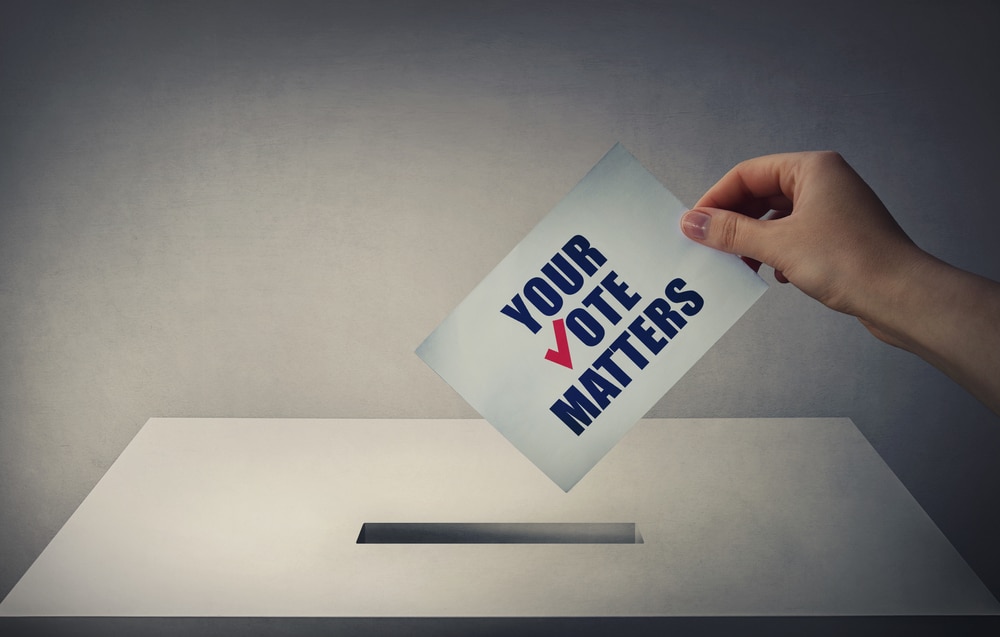Listen to the article
In a season of political noise, Pennsylvania voters are facing a barrage of election mailers about upcoming state Supreme Court retention elections. These official-looking materials cite court cases and sometimes invoke respected organizations like the League of Women Voters—but voters should approach them with healthy skepticism.
These mailers aren’t neutral voter education materials but political advertisements bankrolled by interest groups and political action committees with specific agendas. While technically legal, they often present misleading information, selectively highlighting court decisions to advance particular political objectives rather than providing balanced information.
The stakes in judicial elections are far higher than many voters realize. State Supreme Court justices and other judges make decisions that profoundly affect everyday life in Pennsylvania—from education access and community safety to election administration and reproductive rights. Their rulings determine whether municipalities can hold corporations accountable for environmental damage, whether legislative districts are fairly drawn, and how state laws are applied in civil rights cases.
“Judges interpret existing law to understand how lives, livelihoods, or constitutional rights hang in the balance,” explains one judicial observer. This interpretive role makes their selection a critical matter for voters across the political spectrum.
Unlike high-profile national races that attract millions of votes, judicial contests can be decided by remarkably small margins. In Pennsylvania’s history, local judicial and municipal elections have been determined by fewer than 20 votes. This razor-thin margin explains why special interest groups are investing heavily in these mailers—they know that swaying even a small number of voters could tip the balance.
The financial investment is significant. Special interest groups and political action committees are spending millions of dollars on campaigns designed to influence judicial races throughout the Commonwealth. Their messaging strategies often rely on emotional appeals rather than substantive discussion of judicial philosophy or qualifications.
Pennsylvanians seeking to make informed choices have several reliable resources available. The nonpartisan Vote411.org platform allows voters to compare candidates’ responses to identical questions, providing direct insight into their positions and priorities. The Pennsylvania Bar Association offers recommendations based on professional qualifications and competence rather than partisan considerations.
Media literacy is also essential in this environment. Voters encountering a judicial election mailer should check who funded it and consider what motivations might be behind the messaging. Reading diverse news sources can provide a more complete picture than relying on campaign materials alone.
The composition of Pennsylvania’s Supreme Court has far-reaching implications for governance in the state. With retention elections approaching, the court’s ideological balance could shift, potentially affecting future rulings on everything from environmental regulations to voting rights.
Democracy functions best when citizens make informed choices at the ballot box. While special interests may try to simplify complex judicial records into misleading narratives, voters who take time to research candidates can see beyond the political messaging.
As Pennsylvania heads into this consequential election season, the message from good government advocates is clear: judicial races matter, your vote counts, and making an informed choice strengthens democratic institutions. By seeking out reliable information and exercising their civic responsibility, voters can ensure that Pennsylvania’s courts reflect the values of its citizens, not just the agendas of well-funded interest groups.
Fact Checker
Verify the accuracy of this article using The Disinformation Commission analysis and real-time sources.




14 Comments
The Pennsylvania Supreme Court is taking an important step in warning against election disinformation. Voters need to be able to make informed choices, not be swayed by partisan propaganda masquerading as objective information.
Judicial elections are a crucial part of our democratic process, and voters need to be able to make informed decisions. The Pennsylvania Supreme Court is right to call out deceptive election materials that undermine transparency and accountability.
Disinformation about elections is a serious concern. Voters need accurate, balanced information to make informed decisions in judicial races. The Pennsylvania Supreme Court is right to warn against misleading materials from political groups.
Absolutely. Judicial elections can have significant impacts on people’s lives, so it’s critical that voters have access to factual, unbiased information.
The Pennsylvania Supreme Court is taking a principled stand in defense of election integrity. Voters deserve accurate, balanced information to make informed choices, not partisan propaganda masquerading as voter education.
This is an important issue that goes to the heart of our democratic system. Voters must have access to factual, unbiased information about judicial candidates and their records. Misleading materials from political groups are unacceptable.
Absolutely. Disinformation campaigns that obscure the truth and push a narrow agenda have no place in free and fair elections.
The Pennsylvania Supreme Court is right to raise this alarm. Voters deserve to have the full picture when it comes to judicial candidates and the real-world impact of their decisions. Disinformation campaigns that obscure the facts are unacceptable.
This is a concerning development. Voters must be able to make decisions based on accurate, unbiased information, not partisan propaganda. The Pennsylvania Supreme Court is taking an important stand in defense of election integrity.
Agreed. Judicial elections have profound consequences, so it’s critical that the public has access to reliable, balanced information to inform their choices.
This is an important issue. Voters should be able to trust that information about judicial candidates is objective and comprehensive, not skewed for political gain. Transparency and accountability are crucial for free and fair elections.
I agree. Misleading election materials undermine public trust and threaten the integrity of our democratic process. Vigilance is needed to combat disinformation.
This is a concerning development that speaks to the broader challenge of combating disinformation in our electoral process. The Pennsylvania Supreme Court is right to call out these deceptive practices and defend the public’s right to make informed decisions.
Agreed. Maintaining the integrity of our elections, including in judicial races, is crucial for the health of our democracy. Voters must have access to reliable information, not misleading materials from special interests.